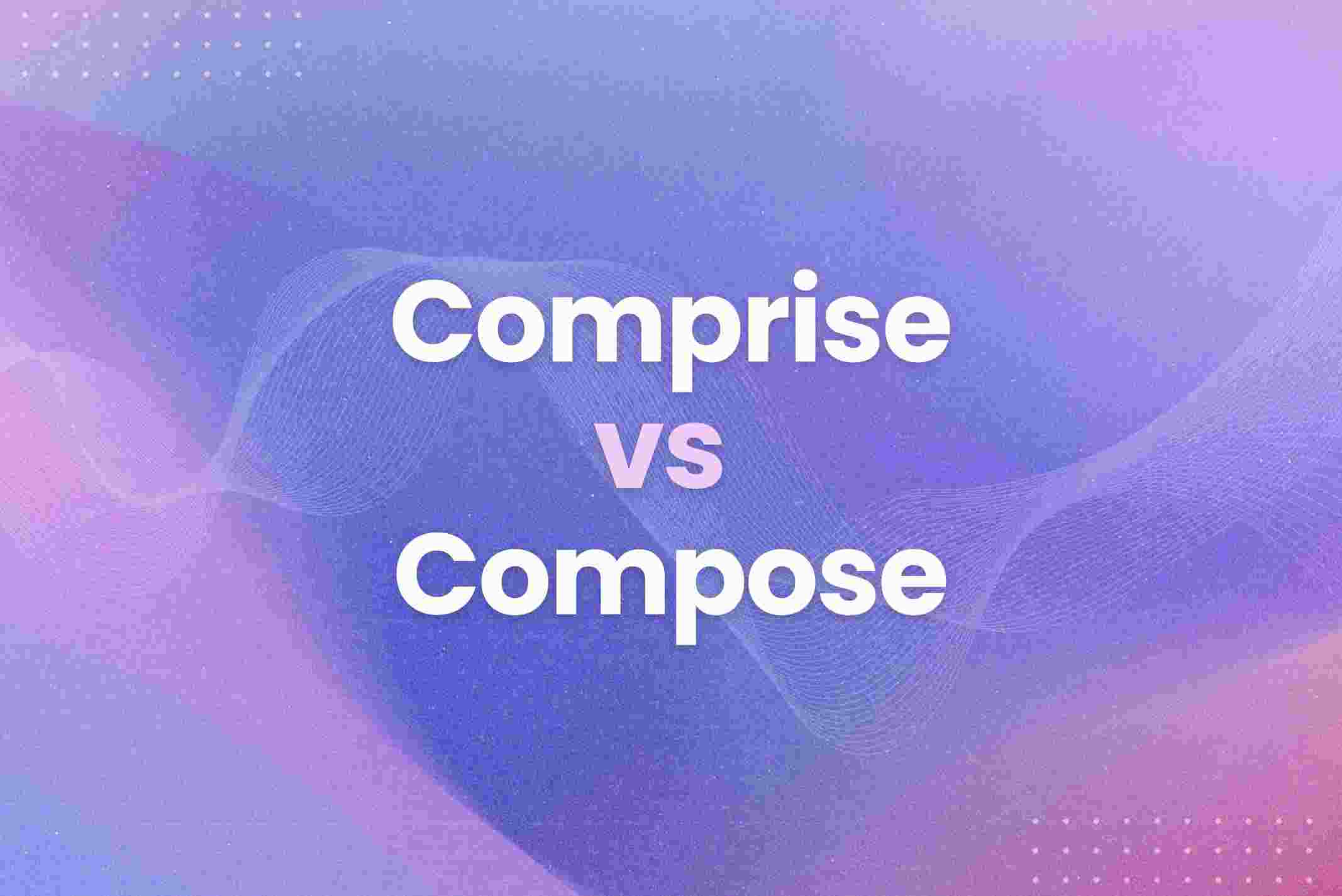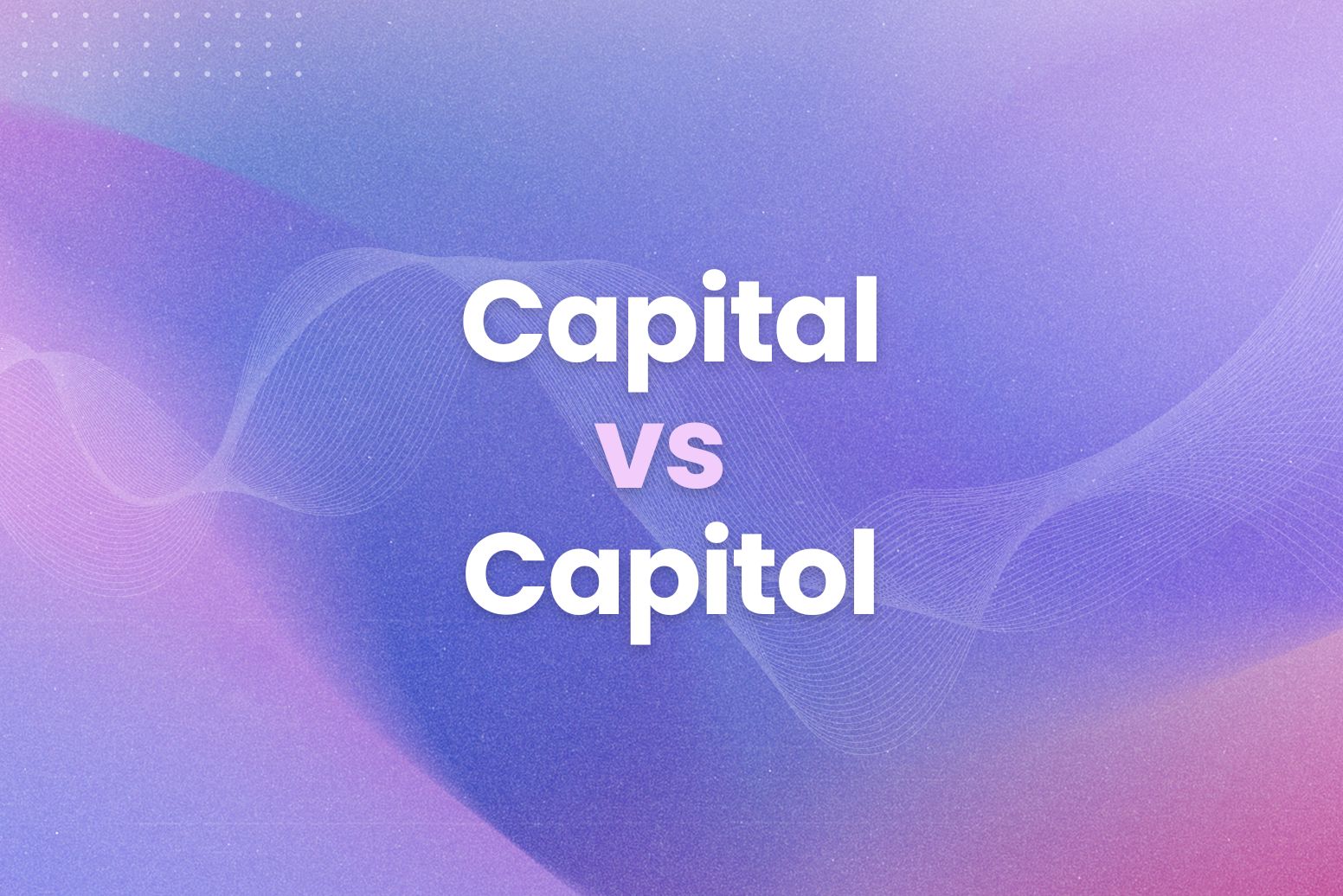When it comes to comprise vs compose, these two little words cause a lot of confusion. They sound similar and seem like they should mean the same thing, but they don’t.
Luckily, you don’t need a fancy grammar degree to use them correctly. We’ll break down the difference in simple terms so that you can write with confidence.
Here’s what we’ll cover:
- What do “comprise” and “compose” mean?
- The key differences between the two words.
- Examples of how to use each word correctly.
- Lastly, tips to remember “comprise” vs. “compose.”
What “Comprise” and “Compose” Mean
Let’s start with the basics. What do these two words actually mean?
- Comprise: To include or contain. It means something is made up of other things.
- Compose: To form or make up. It means something is created from other things.
The Key Differences Between “Comprise” and “Compose”
Now that we know the basic definitions, let’s get into how these words are different. Here’s the key takeaway:
- Firstly, use “Comprise” when discussing the whole thing and what it contains.
- Lastly, use “Compose” when you’re talking about the parts that make up the whole.
Think of a cake. The cake comprises flour, sugar, eggs, and butter. But flour, sugar, eggs, and butter compose the cake.
See? The whole thing (the cake) comprises the parts. The parts compose the whole thing.
Here’s another way to look at it:
- Comprise = “is made up of”
- Compose = “make up”
So, you could say:
- “The United States comprises 50 states.”
- “Fifty states compose the United States.”
Both sentences are correct, but they use the words in different ways.
Pro Tip: If you can replace the word with “include” or “consist of,” “comprise” is likely the correct choice.
Examples of How to Use Each Word Correctly
Here are some examples of how to use “comprise” and “compose” correctly:
Comprise:
- “The committee comprises members from all departments.”
- “The recipe comprises simple, fresh ingredients.”
- “Our team comprises experts in various fields.”
Compose:
- “Several short stories compose the anthology.”
- “Water is composed of hydrogen and oxygen.”
- “Different musical notes compose the melody.”
Notice how “comprise” always refers to the whole, while “compose” refers to the parts making up the whole.
Want to make sure you’re using “comprise” and “compose” correctly in your writing? Fortunately, Arvin, the AI-powered browser extension, can help.

With Arvin’s grammar checker, you can instantly identify and correct any mistakes you might make with these tricky words. Simply install the extension, and Arvin will be your personal grammar guru, right in your browser.
Tips to Remember Comprise vs Compose
Remembering the difference between comprise vs compose can be tricky. But don’t worry, we’ve got you covered. Here are a few tips to help you keep these words straight:
- First of All, The “Parts” Trick. Remember that “compose” has the word “parts” in it. This can help you remember that “compose” refers to the parts that make up something.
- Also, The “Whole” Trick. “Comprise” sounds a bit like “comprehend,” which means to understand something fully. Think of “comprise” as encompassing the whole thing.
- Lastly, The “of” Trick. The word “of” follows “Comprise.” For example, “The team comprises of experts.” This can be a helpful clue to remember which word to use.
When in doubt, use Arvin. Arvin’s grammar checker can help you choose the correct word every time. It’s like having a personal editor right in your browser.
Wrapping Up
Now you know the difference between “comprise” and “compose.” No more grammar slip-ups for you.
Let’s recap the key takeaways:
- Firstly, “comprise” means to include or contain.
- Secondly, “compose” means to form or make up.
- In essence, “comprise” refers to the whole, and “compose” refers to the parts.
Want to write with even more confidence? Arvin can help you catch those tricky grammar errors (like mixing up “comprise” and “compose”) and write with clarity and precision. Give it a try and see the difference.
FAQs
The difference between “comprise” and “compose” can be a bit tricky, but we’ll make it clear. Essentially, it comes down to which word you use to describe the whole and which you use for the parts.
Comprise: Use this when you’re talking about the whole thing and what it contains. For instance, you might say, “The house comprises five rooms.”
Compose: Use this when you’re talking about the parts that make up the whole. For example, you could say, “Five rooms compose the house.”
In short, “comprise” means “to be made up of,” while “compose” means “to make up.”
This is a common point of confusion. The correct phrase is “composed of.” Why? Because you’re talking about the individuals who make up the group. Similarly, a team is also “composed of” its members.
Here’s another word you might often mix with “comprise”: constitute.
Comprise: Again, this means “to be made up of.” It emphasizes the whole containing the parts.
Constitute: This means “to form or make up.” It emphasizes the parts forming the whole.
In other words, “constitute” is very similar to “compose.” However, “comprise” has a slightly different emphasis.
To clarify with an example:
“Fifty states compose the United States.”
“Fifty states constitute the United States.”
“The United States comprises fifty states.”
All three sentences are correct. But they have slightly different shades of meaning. “Comprise” highlights the whole (the United States) containing the parts (the states). “Compose” and “constitute” highlight the parts (the states) forming the whole (the United States).






